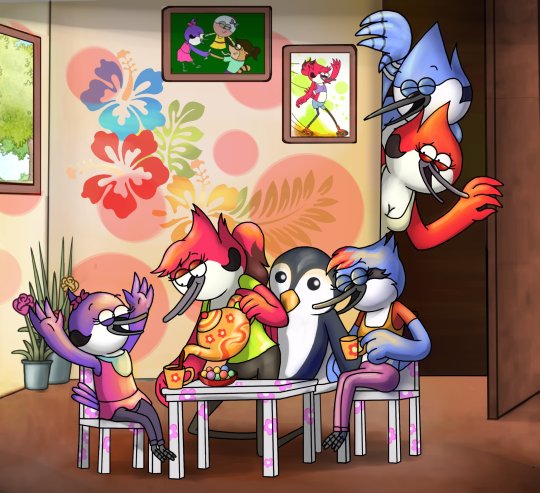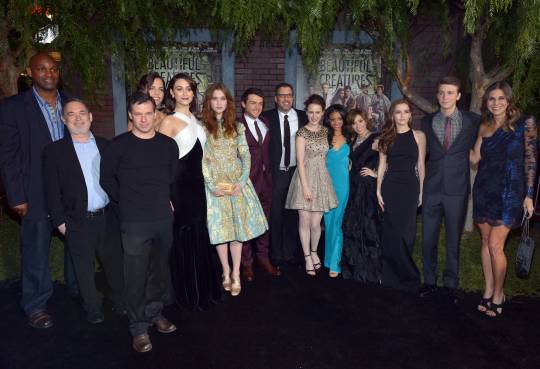#molly smith
Explore tagged Tumblr posts
Text
[“People are attracted to the concept of a Nordic-style law that criminalises only the sex buyer, and not the prostitute – but any campaign or policy that aims to reduce business for sex workers will force them to absorb the deficit, whether in their wallets or in their working conditions. As a sex worker in the Industrial Workers of the World observes,
I find that how easy, safe, and enjoyable I can make my work is directly related to whether I can survive on what I’m currently making … I might be safer if I refused any clients who make their disrespect for me clear immediately, but I know exactly where I can afford to set the bar on what I need to tolerate. If I haven’t been paid in weeks, I need to accept clients who sound more dangerous than I’d usually be willing to risk.
When sex workers speak to this, we are often seemingly misheard as defending some kind of ‘right’ for men to pay for sex. In fact, as Wages For Housework articulated in the 1970s, naming something as work is a crucial first step in refusing to do it – on your own terms. Marxist-feminist theorist Silvia Federici wrote in 1975 that ‘to demand wages for housework does not mean to say that if we are paid we will continue to do it. It means precisely the opposite. To say that we want money for housework is the first step towards refusing to do it, because the demand for a wage makes our work visible, which is the most indispensable condition to begin to struggle against it.’ Naming work as work has been a key feminist strategy beyond Wages For Housework. From sociologist Arlie Hochschild’s term ‘emotional labour’, to journalist Susan Maushart’s term ‘wife-work’, to Sophie Lewis’s theorising around surrogacy and ‘gestational labour’, naming otherwise invisible or ‘natural’ structures of gendered labour is central to beginning to think about how, collectively, to resist or reorder such work.
Just because a job is bad does not mean it’s not a ‘real job’. When sex workers assert that sex work is work, we are saying that we need rights. We are not saying that work is good or fun, or even harmless, nor that it has fundamental value. Likewise, situating what we do within a workers’ rights framework does not constitute an unconditional endorsement of work itself. It is not an endorsement of capitalism or of a bigger, more profitable sex industry. ‘People think the point of our organisation is [to] expand prostitution in Bolivia’, says ONAEM activist Yuly Perez. ‘In fact, we want the opposite. Our ideal world is one free of the economic desperation that forces women into this business.’
It is not the task of sex workers to apologise for what prostitution is. Sex workers should not have to defend the sex industry to argue that we deserve the ability to earn a living without punishment. People should not have to demonstrate that their work has intrinsic value to society to deserve safety at work. Moving towards a better society – one in which more people’s work does have wider value, one in which resources are shared on the basis of need – cannot come about through criminalisation. Nor can it come about through treating marginalised people’s material needs and survival strategies as trivial. Sex workers ask to be credited with the capacity to struggle with work – even to hate it – and still be considered workers. You don’t have to like your job to want to keep it.”]
molly smith, juno mac, from revolting prostitutes: the fight for sex workers’ rights, 2018
1K notes
·
View notes
Text
Molly Smith
#beautiful#celeb#celebrity#femalestunning#hot and sexy#celebrity bikini#dailycelebs#celeb crush#celebrity lingerie#sexy celebrities#molly smith#hot celebs#hot as hell#celebrity legs#celebrity cleavage#celebrity crush#ironlegend27#sexy lace lingerie
290 notes
·
View notes
Text

Haddis Way - Molly Smith, 2022.
American , b . 1976 -
Colour pencil on paper, 29 x 22 in.
195 notes
·
View notes
Text

[REGULAR LOVE] Playing The Tea Time.
Rosita está jugando al parecer a la hora del té con sus hermanitas y sus padres se emocionan al verlas jugar juntas.
Rose she is apparently playing at tea time with her little sisters and thier parents are excited to see them playing together.
Created By @nicomxm23.
Anya is the Fanchild of @jane-lafurry.
Molly is the Fanchild of @leche-con-galletitas18.
#regular show#regular show fanart#margaret smith#mordecai#rosita smith#anya smith#molly smith#mordaret#mordecai margarita#mordecai x margaret#mordecaiandmargaret#margarita#margaret#margaritaymordecai#tea time#poofy the penguin#playing#regularlove#lovebirds#fanart#cartoon#animation#morderita
24 notes
·
View notes
Text

9 notes
·
View notes
Text

Molly Smith by Anna Daki for Vogue Greece October 2019
15 notes
·
View notes
Text

2 notes
·
View notes
Text

2 notes
·
View notes
Text

2 notes
·
View notes
Text
[“In the autumn of 2016, the two of us and a colleague attended a feminist conference in Glasgow. A somewhat hostile but curious woman came over to speak with us. She ran an NGO, it turned out, that defended the rights of migrant women across Europe, and she wanted to talk to us about the men – the punters. Weren’t they disgusting, she wanted to know. How could we disagree that they should be punished? We agreed that clients are often bad, but explained that punishing them produces harms for people who sell sex. We mentioned the evictions of sex workers in Nordic countries. Our interlocutor agreed that these evictions are real; women are thrown out of their houses in Scandinavia, yes. In fact, she told us, migrant women come to her NGO complaining that they have been thrown out of flats or hotels in Sweden, sometimes in the middle of the night. She continued, a note of derision entering her voice: ‘When that happens, I just think to myself’, she told us, mimicking her interactions with these evicted women, ‘I just think, lucky you: at least you’re not murdered’. She rolled her eyes at us.
We aren’t asking you to love the sex industry. We certainly don’t. We are asking that your disgust with the sex industry and with the men – the punters – doesn’t overtake your ability to empathise with people who sell sex. A key struggle that sex workers face in feminist spaces is trying to move people past their sense of what prostitution symbolises, to grapple with what the criminalisation of prostitution materially does to people who sell sex. People in these spaces see abstractions like ‘objectification’ and ‘sexualisation’ as universally relatable everywoman concerns. When we point out that the policies which flow from such discussions often lead to sex workers being evicted or deported, we are seen as raising ‘niche’ issues – or as obtusely unable to understand the ‘bigger picture’. We need to push our sisters to grapple with the ‘niche’ questions. Nobody can build a better, more feminist world by treating sex workers’ current material needs – for income, for safety from eviction, for safety from immigration enforcement – as trivial.
Both carceral and liberal forms of feminism are attractive because they offer seemingly easy answers to complex problems. Women’s work is underpaid and undervalued? Ask for that raise! Sexual violence is endemic? Fund more cops! There’s commercial sex online? Pass legislation to kick sex workers off the internet! Carceral feminism even styles itself as radical in doing so: radically uncompromising with male sexual entitlement, radically seeking to ‘burn down’ the sex industry. Such radicalism evaporates on closer examination: cops are not feminist. The mainstream feminist movement is correct in identifying prostitution as a patriarchal institution; they conveniently miss that policing is, too. Attempting to eradicate commercial sex through policing does not tackle patriarchy; instead, it continues to produce harassment, arrest, prosecution, eviction, violence, and poverty for those who sell sex.”]
molly smith, juno mac, from revolting prostitutes: the fight for sex workers’ rights, 2018
250 notes
·
View notes
Text


Zoey Deutch, Tiffany Boone, Emmy Rossum, Alice Englert, Rachel Brosnahan attend the premiere of "Beautiful Creatures" at the TCL Chinese Theater in Hollywood, California on February 6, 2013.
Producer Broderick Johnson, producer Erwinn Stoff, producer Andrew Kosove, writer Margaret Stohl, Emmy Rossum, Alice Englert, Alden Ehrenreich, director Richard LaGravenese, Rachel Brosnahan, Tiffany Boone, writer Kami Garcia, Tiffany Boone, Thomas Mann and producer Molly Smith attend the premiere of "Beautiful Creatures" at the TCL Chinese Theater in Hollywood, California on February 6, 2013.
#alden ehrenreich#zoey deutch#tiffany boone#emmy rossum#alice englert#rachel brosnahan#broderick johnson#erwinn stoff#andrew kosove#richard lagravenese#kami garcia#thomas mann#molly smith#margaret stohl#beautiful creatures#babyjujubee#adoring alden ehrenreich#tumblr#google
4 notes
·
View notes
Text
LOVE ISLAND ALL STARS
HOLA HOLA! LOVE ISLAND ALL STARS....... season 1!
Right now, I don't wanna commit to season 2 book without knowing what happens right now. But I only like one boy in there right now. And I don't fancy any girl other than Liv, but IDK what to do so I'll wait it out right now.
But if you could help me with an idea for the OC, for my wattpad page, then please help me!
Please and thank you!
Here is the link!
#love island 2024#love island#love island all stars#love island uk#callum jones#molly smith#original character
0 notes





